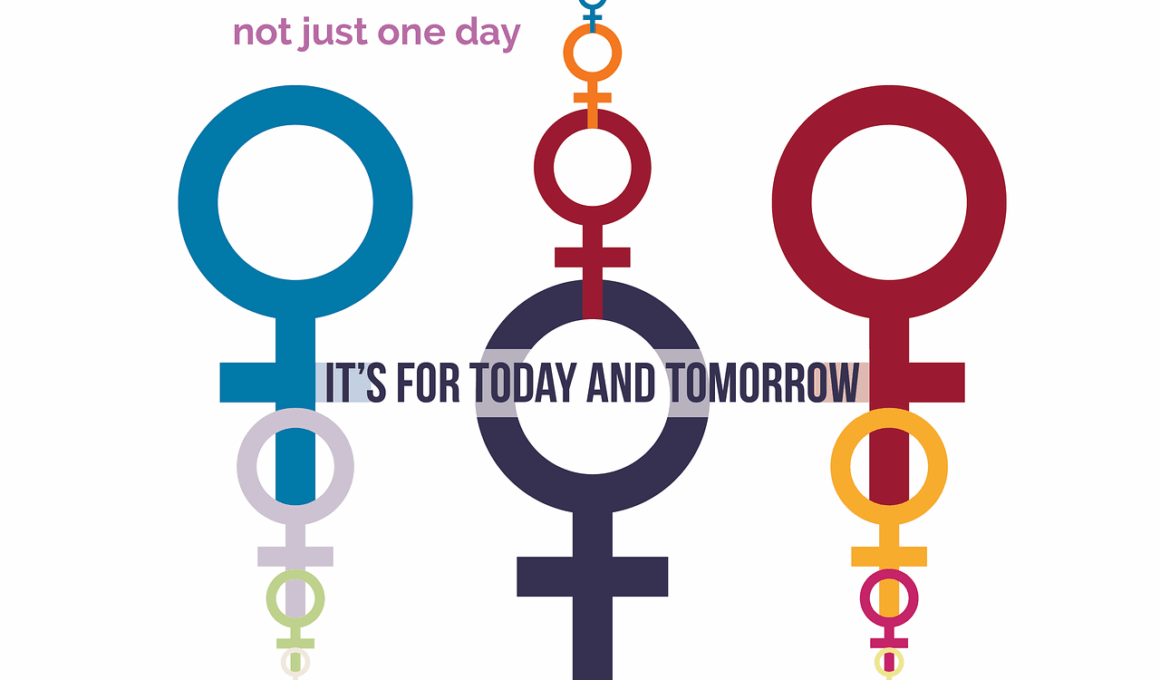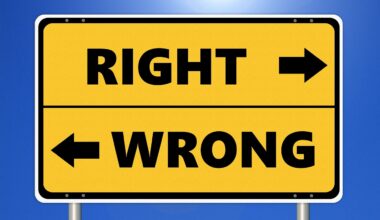Women in Event Marketing: Breaking Barriers and Leading the Industry
Event marketing has become a driving force in the current business climate, particularly due to the global pandemic’s impact. Women have seized opportunities in this expanding field, showing their competence, creativity, and leadership skills. Many prominent figures have emerged, illustrating the profound contributions women make to event marketing. Female event marketers showcase unique perspectives and systematic approaches that help tailor innovative marketing strategies. The advantages of inclusivity are numerous, especially when considering the significance of diverse viewpoints in shaping marketing messages. When women take the lead in these roles, they often promote collaborative environments that encourage innovative ideas. As a result, overall campaigns can resonate more with a variety of audiences. Industry connections are crucial, and women have increasingly embraced networking opportunities to support one another and share best practices. Many organizations focus on empowering women in these roles through mentorship programs and workshops, further enhancing their skills. By redefining norms within the industry, women in event marketing not only excel professionally but also inspire future generations. They encourage young professionals to pursue ventures in this dynamic and ever-evolving field.
The Rise of Women in Event Marketing
In recent years, the landscape of event marketing has been transformed due to the pivotal role women play in this sector. Remarkably, women hold several prominent positions, ranging from planners to executives, profoundly shaping the industry. They bring innovative approaches and diverse experiences, significantly impacting how events are designed, implemented, and evaluated. Many women leverage technology and digital platforms to enhance engagement and reach broader audiences. Their adaptability often leads to fruitful relationships with clients and stakeholders, ensuring successful outcomes. Female-led teams reflect a balanced approach, acknowledging diverse perspectives and prioritizing collaboration over competition. Women have set their sights on mentoring emerging talent and fostering inclusive environments. This growing movement amplifies voices in an industry still recovering from pandemic-induced changes. Leading industry organizations promote women’s representation and advocate for their advancement. Various initiatives drive conversations surrounding gender equality, challenging stereotypes that have long restricted women in professional arenas. As women continue to break barriers, they are rewriting the standards and expectations within an evolving event marketing landscape. Ultimately, this transformation serves as a motivation for both current and aspiring professionals to embrace diversity and shared successes.
The roles women undertake in event marketing are diverse and multifaceted. Responsibilities may range from strategizing and budgeting to coordinating logistics and managing relationships. Women often excel in roles that require empathetic communication and strong interpersonal skills, particularly vital in orchestrating successful events. Many develop specialized expertise that positions them as invaluable assets to their teams. For instance, they can analyze data trends to optimize return on investment, something organizations increasingly prioritize. Collaboration with vendors, sponsors, and clients constitutes a significant portion of an event marketer’s duties. Women have been shown to foster trust and build relationships that ease negotiations and secure event success. The importance of resilience cannot be overstated; women in event marketing learn to navigate challenges such as fluctuating goals and budget constraints. By staying adaptable, they turn potential setbacks into opportunities for growth and learning. With the rise of remote and hybrid events, navigating technology has become critical. Women have rapidly adapted, showcasing tech-savvy skills enabling them to implement innovative solutions that boost engagement. Overall, the collaborative spirit of women in event marketing enriches the entire industry, inspiring more equal representation in various sectors.
Challenges Faced by Women in Event Marketing
Despite the strides women have made in event marketing, they still face numerous challenges. Gender stereotypes continue to persist, affecting perceptions of women’s capabilities and limiting their opportunities for advancement. Many women encounter biases that can undermine their confidence, making it difficult to assert themselves in male-dominated executive spaces. Additionally, work-life balance remains a significant concern, especially as event planning often demands long hours and unpredictable schedules. Women are often tasked with juggling family responsibilities alongside demanding careers, which can lead to burnout and dissatisfaction. Efforts to promote women’s roles must also address systemic barriers that persist in organizations. Companies need to provide equal opportunities for growth through leadership development programs specifically targeting women. Equally, discussing issues like pay equity is crucial to ensure women get the compensation they deserve. Surrounding women with supportive networks can help combat isolation in leadership roles and open avenues for mentorship and advice. Investing in programs that promote female leadership within organizations not only empowers women but also enhances overall business performance. Such efforts contribute to creating a more equitable and dynamic event marketing landscape.
Women are increasingly recognized as trailblazers and innovators in event marketing, often leading by example and fostering a culture of inclusivity. Industries have demonstrated the advantages of having women in leadership roles, noting creativity and effectiveness in their approaches. Networking events, workshops, and conferences have become popular platforms for women to learn from each other’s experiences and celebrate achievements. These gatherings enable women to exchange ideas and collaborate on innovative projects, ultimately benefiting the event marketing field. Networking also strengthens relationships among professionals, creating pathways for collaboration and future opportunities. As women rally together, they serve to inspire and uplift one another, resulting in a supportive community. Various organizations provide resources to develop skills and foster leadership capabilities focused specifically on women in the industry. Through scholarships, grants, and mentorship programs, talented women can overcome financial barriers and enhance their expertise. Efforts to boost visibility by sharing success stories contribute to encouraging young girls to consider careers in event marketing. Combined, these initiatives illuminate the path for future female leaders, showing that the industry is rich with possibilities for those willing to embrace creativity and ambition.
Future Perspectives: A Collaborative Approach
As event marketing evolves, the importance of collaboration and continuous learning cannot be underscored enough. Women have begun to lead the charge towards innovative practices that enhance the overall experience within this industry. Collaboration fosters unique ideas and sustainable relationships with stakeholders, thus driving success. By sharing knowledge, women can build upon each other’s strengths and fill gaps in experience. Establishing communities that encourage women to connect and share insights will aid in future advancements. Events focused on women’s empowerment within the industry will cultivate further innovation and engagement. Additionally, creating forums where women can discuss their challenges and achievements can serve as incubators for ideas and solutions. Education has become increasingly available through online platforms and workshops designed to support professional development in event marketing. Mentorship and sponsorship initiatives have garnered attention, offering women guidance as they navigate their careers. The impact of these programs is profound, fostering confidence and encouraging risk-taking among women aspirants. The commitment to pushing boundaries will create a vibrant future for women in event marketing, ensuring they hold a significant position in shaping the industry’s trajectory.
In conclusion, women are actively shaping the future of event marketing, demonstrating resourcefulness and resilience in their roles. Recognizing their contributions can inspire other women and create an environment conducive to further advancements. Companies that champion gender equality and embrace diverse viewpoints will ultimately thrive in competitive markets. By engaging female professionals in collaborative endeavors and giving them traction, the industry will witness enhanced creativity and innovation. Furthermore, a strong focus on networking and mentorship will continue to empower women, providing them with the tools they need to excel. As barriers crumble, women are paving the way for a more equitable representation in various organizational contexts. Inclusive practices yield benefits, as sharing different perspectives creates a palatable knowledge base. The journey is far from over, but the gains made by women in event marketing unmistakably highlight the importance of diversity in shaping the industry’s future. As women climb the leadership ranks, they inspire the broader community and reinforce the notion that all women have the capability to succeed. The event marketing industry stands as a testament to this, evolving into a space marked by innovation and collaboration.


